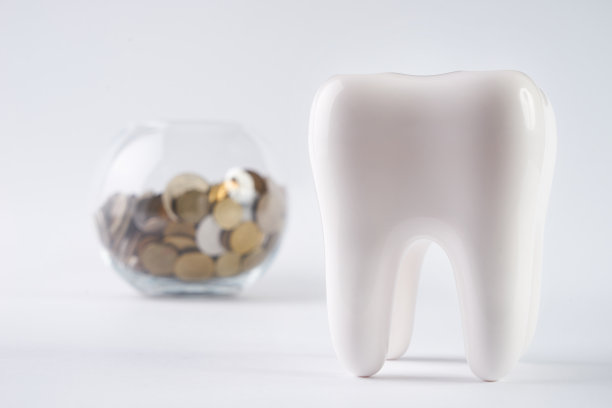Summary: Periodontal disease is a significant but often overlooked health issue that affects many individuals globally. This article delves into the impact of periodontal disease on overall health, highlighting its connections to various systemic conditions such as cardiovascular disease and diabetes. Additionally, it provides effective prevention strategies to maintain dental wellness, emphasizing the importance of regular dental check-ups, proper oral hygiene, and a balanced diet. Understanding these aspects is crucial for individuals aiming to enhance their dental health and overall quality of life. By addressing both the implications of periodontal disease and the means of prevention, individuals can take proactive steps toward achieving optimal health.
1. Periodontal Disease and Its Systemic Effects

Periodontal disease, primarily characterized by inflammation and infection of the gums, can significantly affect overall health. Research has demonstrated that this condition is linked to various systemic diseases, including cardiovascular diseases. The inflammation and bacteria resulting from periodontal disease can enter the bloodstream, triggering arterial plaque buildup and increasing the risk of heart attacks and stroke.
Moreover, studies suggest a relationship between periodontal disease and diabetes. Individuals with uncontrolled diabetes are more susceptible to developing periodontal disease, which can create a perplexing cycle of worsening health. This interconnection highlights the need for diabetic patients to focus on proper oral care to manage both their dental and overall health effectively.
Aside from cardiovascular health and diabetes, periodontal disease is also associated with respiratory infections. Poor oral health can lead to bacteria entering the lungs, thus increasing the risk for conditions such as pneumonia. This demonstrates the expansive reach of periodontal disease’s implications, emphasizing that oral health cannot be viewed in isolation.
2. Recognizing Early Signs of Periodontal Disease
Recognizing the early signs of periodontal disease is pivotal for effective intervention. Symptoms such as swollen or bleeding gums, persistent bad breath, and gum recession are crucial indicators that should not be ignored. Early detection is vital, as untreated gum disease can progress rapidly and lead to more severe health issues.
Regular dental check-ups play a significant role in identifying these symptoms early. Dentists can perform professional cleanings and exams, ensuring that any signs of gum disease are detected well in advance. By fostering a habit of regular dental visits, individuals can safeguard their oral health and prevent the progression of periodontal disease.
Furthermore, individuals should be proactive in monitoring their oral health at home. Keeping track of any changes in gum appearance or oral discomfort can provide critical insights into potential periodontal issues. Empowering oneself with knowledge about the early signs of gum disease creates an opportunity for timely and effective treatment.
3. Effective Prevention Strategies for Dental Health
Maintaining dental wellness is fundamental in preventing periodontal disease. Effective prevention strategies include rigorous oral hygiene practices such as brushing twice a day with fluoride toothpaste and daily flossing. These steps help control plaque buildup and prevent gum inflammation.
A balanced diet also plays a crucial role in oral health. Consuming foods rich in vitamins and minerals, particularly vitamins C and D, can strengthen gums and support overall oral health. Additionally, reducing sugar intake can help diminish the risk of cavities and gum disease triggered by harmful bacteria.
Finally, avoiding tobacco products is a vital component of periodontal disease prevention. Smoking not only weakens gum health but also hinders the body’s ability to heal. Educating oneself about the harmful effects of tobacco can motivate individuals to make healthier choices, further enhancing their dental wellness.
4. Importance of Regular Dental Check-Ups
Regular dental check-ups are essential for maintaining oral health and preventing periodontal disease. During these visits, dental professionals can promptly identify any signs of gum disease or other oral health issues before they escalate. This proactive approach can save individuals from facing more complicated dental treatments later on.
Furthermore, dental professionals provide tailored advice and treatments based on individual needs. They can recommend specific oral hygiene routines and dietary changes that align with a persons health profile. This personalized care ensures that patients are equipped with the best strategies to maintain their oral health.
In conclusion, maintaining regular dental appointments is not merely about addressing existing issues, but it is also about preventing disease and promoting long-term health. Individuals who prioritize these visits are making a wise investment in their overall wellness.
Summary:
This article highlights the significant implications of periodontal disease on overall health, linking it to various systemic conditions while emphasizing the importance of early detection and effective prevention strategies. By adopting proactive oral hygiene practices and maintaining regular dental check-ups, individuals can protect both their dental wellness and overall health.
This article is compiled by Vickong Dental and the content is for reference only.
Vickong Dental
Vickong Dental is a large medical group established in Hong Kong in 2008 by professors from well-known medical universities in Guangdong and Hong Kong, as well as medical doctors from key national '985' universities (including Master's supervisors and senior professors). The chain of branches brings together expert dentists with PhDs and Master's degrees from Hong Kong and Mainland China, committed to providing high-quality dental treatment.
"Vickong Dental Practices the University Motto of 'Healing and Serving Society,' with a Stable Operation for Sixteen Years. It Has Been honored with Hong Kong Enterprise Leaders's Choice,' and is a Global Trusted Implant Center for the Nobel Implant System. Recommended by Hong Kong Metro Broadcast and Guangdong Television, it Serves Customers from Over Thirty Countries and Regions, Gaining the Trust and Favor of Citizens from the Guangdong-Hong Kong-Macau Greater Bay Area and Surrounding Cities.

Thousands of customers' unanimous praise
The most recognized and highly recommended dental service by customers in the Guangdong-Hong Kong-Macau Greater Bay Area
We Ensure You Receive Detailed Care and Attention Here
Hong Kong standards, Shenzhen prices, Your Trusted English-speaking dentists

Vickong Dental Medical-Grade Instrument Disinfection Process
Vickong Dental Medical-Grade Instrument Disinfection Process

Vickong Dental Chain: A Warm and Comfortable Environment for Treatment






Appointment Hours

Q&A
Why choose Vickong Dental?
Vickong Dental practices the university motto 「Medicine to Benefit Society」, with each branch bringing together highly qualified dentists with doctoral and master’s degrees from Hong Kong and the Mainland, and has maintained seventeen years of steady operation。Recipient of 「2024 Hong Kong Enterprise Leaders Brand」, 「2025 Hong Kong Enterprise Leaders Brand」, a Nobel Biocare Global Trusted Implant Center, and a brand recommended by Metro Radio Hong Kong and Guangdong TV。
To date, we have served customers from more than thirty countries and regions,earning exceptionally high word-of-mouth recognition and trusted recommendations from residents across the Guangdong-Hong Kong-Macao Greater Bay Area and surrounding cities
We have eight major branches in Zhuhai、Shenzhen,and a consultation and service assurance center in Hong Kong,so you can book a free consultation at any time for any questions,which is very reassuring.
If I do not accept the quotation after the CT scan, will I be charged??
No! As long as the actual treatment has not started, you will not be charged any fees.
Will there be any additional charges during the treatment process?
No, there won’t be any additional charges. Before treatment begins, we will clearly explain the treatment plan and its corresponding fees. Only after the patient agrees and signs the consent form will we proceed with the dental service.
Can I pay in Hong Kong dollars?
Yes. Vickong Dental accepts payment in Hong Kong dollars. The amount will be converted based on the exchange rate of the day, and the applicable rate will be clearly communicated to you in advance.
Can I reschedule my appointment at any time?
Yes. Please contact us via **WeChat** or **WhatsApp** as early as possible, providing your original appointment time and details, along with your preferred new date and time slot for rescheduling.













